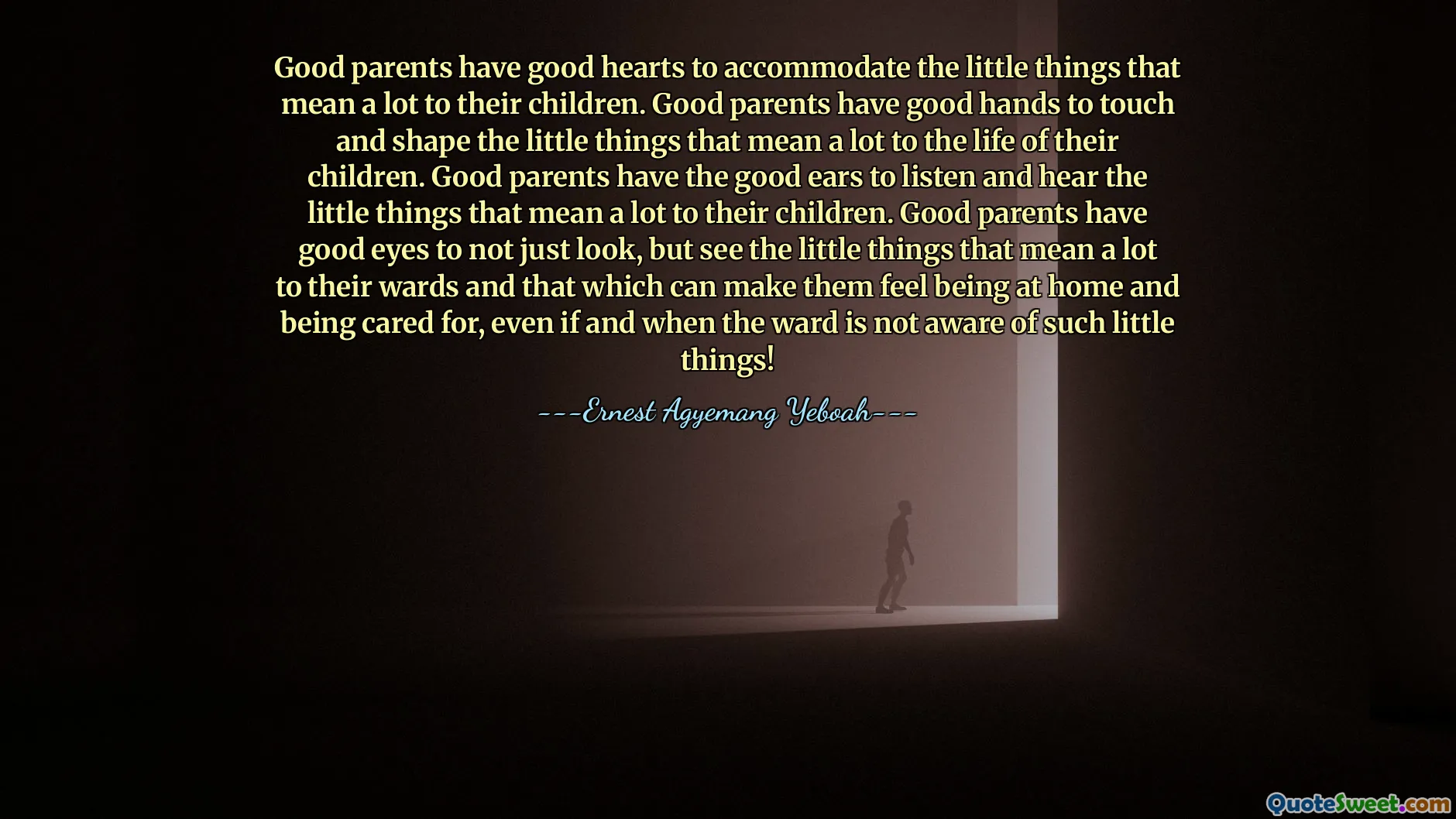
Good parents have good hearts to accommodate the little things that mean a lot to their children. Good parents have good hands to touch and shape the little things that mean a lot to the life of their children. Good parents have the good ears to listen and hear the little things that mean a lot to their children. Good parents have good eyes to not just look, but see the little things that mean a lot to their wards and that which can make them feel being at home and being cared for, even if and when the ward is not aware of such little things!
This quote beautifully captures the essence of what it means to be a truly good parent. It moves beyond the traditional view of parenting centered merely on providing material needs and discipline, emphasizing instead the attention to small, often overlooked details that forge deep emotional connections. Good parenting, as articulated here, involves a heartfelt engagement — a "good heart" that warmly accommodates and treasures the little things that resonate deeply within a child's inner world. These minor gestures or moments, though seemingly insignificant, accumulate to shape a child's sense of security and belonging.
The metaphor of "good hands" highlights the active role parents play in guiding and nurturing their child's development, not only through physical support but by shaping their attitudes and experiences. Meanwhile, the "good ears" symbolize genuine listening — an openness and sensitivity to a child’s words, feelings, and silences. True understanding requires more than just hearing; it demands an empathetic presence.
The "good eyes" speak to the distinction between merely looking and truly seeing, implying a conscious effort to perceive unapparent needs, emotions, and signals. This form of seeing fosters a sense of being truly known and valued, crucial for a child's emotional health. The culmination of these faculties—heart, hands, ears, and eyes—paints a picture of parenting as an intimate, multi-sensory art rooted in awareness and compassion.
Lastly, the recognition that children might not always be conscious of these "little things" underlines parenting as an unconditional gift. This holistic and empathetic approach nurtures environments where children feel safe, loved, and understood, nurturing their growth into confident and caring individuals. The quote is a profound reminder that the smallest acts of love often carry the heaviest weight in a child's life.











